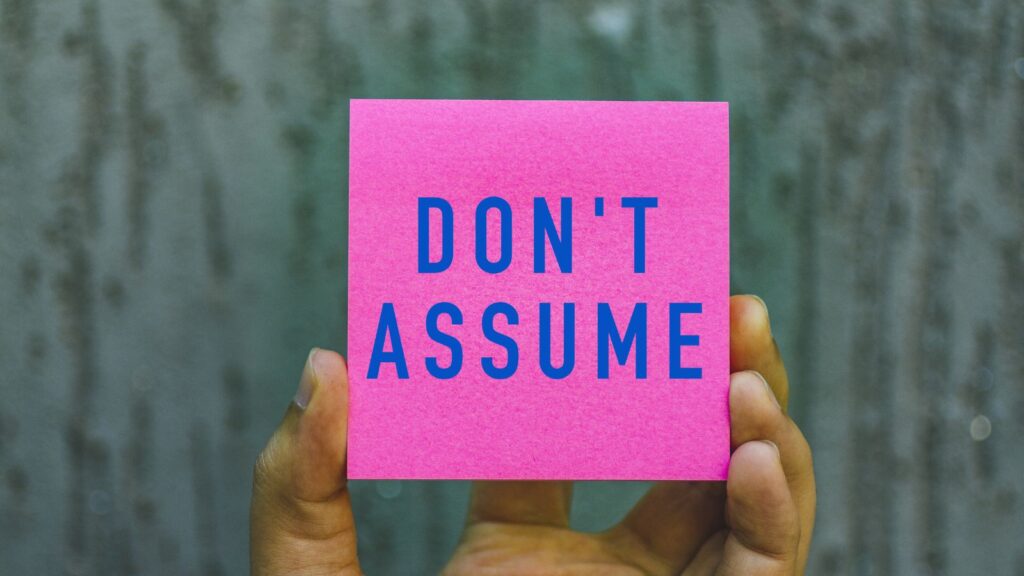Dealing with difficult people is a common challenge in various aspects of life, whether it's at work, within your social circle, or even in family dynamics. Learning effective strategies to manage interactions with difficult individuals can help reduce stress, improve communication, and maintain your own well-being. When you are faced with difficult people these strategies can help you to navigate your interactions more effectively.
Maintain Your Composure

When dealing with difficult people, it's essential to stay calm and composed. Emotions can escalate quickly, so take deep breaths and remind yourself to respond, not react, to their behavior. Keeping your composure allows you to approach the situation with clarity and control.
Listen Actively

Practice active listening when engaging with difficult people. Pay close attention to what they're saying without interrupting. Reflect back their concerns or emotions to demonstrate that you understand what’s been said. Active listening fosters better communication and shows that you respect their perspective.
Set Boundaries

Establishing clear boundaries is crucial when dealing with difficult people. Communicate assertively about what behaviors are acceptable to you and what are not. Boundaries protect your well-being and help manage expectations in the relationship.
Choose Your Battles

Not every disagreement needs to be an argument. Assess the situation and determine if it's worth engaging with the difficult person or if it's better to let minor issues go. Also, prioritize your energy on resolving conflicts that have a significant impact on your relationship or well-being.
Empathize

Try to understand the underlying reasons behind the difficult person's behavior. Empathy doesn't mean condoning their actions but rather acknowledging their emotions or motivations. Showing empathy can help defuse tension and open the door to constructive dialogue.
Maintain Perspective

Keep things in perspective when dealing with difficult people and don’t go off on tangents. Consider the bigger picture and how this interaction fits into your overall goals and values. Avoid getting caught up in petty disputes or letting their behavior dictate your mood or actions.
Focus on Solutions

Shift the focus from the person's behavior to finding solutions to the issues at hand. Collaborate on problem-solving rather than dwelling on past grievances or assigning blame. Used a focused approach encourages constructive dialogue and moves towards resolution and reduces the risk of getting caught in a circular argument that goes nowhere.
Use Assertive Communication

Assertiveness is key in managing interactions with difficult people. Clearly state your thoughts, feelings, and boundaries without being passive or aggressive. Use “I” statements to express yourself assertively while taking ownership of your own perspective. Don’t back down with what you want. It is important to stand your ground, even if it is more uncomfortable.
Stay Objective

When faced with challenging behavior, strive to remain objective and factual in your responses. Stick to observable behaviors and avoid making assumptions about the person's intentions or motivations. Objectivity helps prevent misunderstandings and keeps conversations productive. If you strip the emotions from the situation, it is a lot easier to get a resolution.
Avoid Escalation

Resist the urge to escalate conflicts with difficult people. Refrain from matching their aggression or engaging in power struggles. Instead, focus on de-escalating the situation through calmness and diplomacy. Steer conversations towards mutual understanding and compromise. If you start to behave in the same manner as the difficult personality, you will be caught in a vicious cycle.
Take Timeouts When Needed

If emotions run high or the interaction becomes overwhelming, take a timeout. Excuse yourself from the conversation temporarily to regain composure and perspective. Use this time to reflect on your feelings and plan how to approach the situation constructively. Taking time out will help you to get back on tract and let go of built up tension.
Seek Support

Don't hesitate to seek support from trusted friends, colleagues, or mentors when dealing with difficult people. Venting to someone who understands can provide emotional validation and alternative perspectives. Supportive individuals can also offer advice on handling challenging interactions.
Focus on Positive Interactions

Balance your interactions with difficult people by nurturing positive relationships elsewhere. Surround yourself with supportive individuals who uplift and encourage you. Positive interactions counterbalance the negativity and stress caused by difficult individuals.
Practice Patience

Dealing with difficult people requires patience and perseverance. Recognize that behavior change takes time, and not every interaction will yield immediate results. Try to approach each interaction with patience, allowing space for gradual improvement or resolution.
Educate Yourself

Expand your understanding of interpersonal dynamics and communication strategies. Read books, attend workshops, or seek online resources that offer insights into managing difficult people. Enhancing your knowledge equips you with effective tools and techniques for navigating challenging interactions. The more you know, the better equipped you will be.
Maintain Flexibility

Be willing to adapt your approach when dealing with difficult people. What works in one situation may not be effective in another. Flexibility allows you to adjust your communication style, boundaries, or strategies based on the specific circumstances and personalities involved.
Practice Self-Care

Prioritize self-care to maintain emotional resilience when dealing with difficult people. Engage in activities that rejuvenate you, such as exercise, hobbies, meditation, or spending time in nature. Taking care of your well-being ensures you have the energy and perspective to handle challenging interactions. It will also help you keep your head on straight and not get sucked into their difficult ways.
Set Realistic Expectations

Manage your expectations when interacting with difficult individuals. Understand that you may not be able to change their behavior overnight or achieve a perfect resolution. Set realistic goals for improving communication or reducing conflict gradually over time. Slow and steady wins the race with difficult personalities.
Know When to Seek Professional Help

If interactions with difficult people significantly impact your well-being or relationships, consider seeking professional guidance. A therapist or counselor can provide objective support, strategies for managing conflict, and insights into interpersonal dynamics. Therapy offers a safe space to explore your feelings and develop healthier coping mechanisms.
Navigating Relationships Requires Patience

Navigating relationships with difficult people requires patience, self-awareness, and effective communication skills. If you maintain your cool, you can mitigate conflict, maintain your composure, and foster more positive interactions. Remember, managing difficult people is a gradual process that involves setting boundaries, practicing empathy, and prioritizing your own emotional well-being. With time and persistence, you can navigate challenging relationships with greater confidence and resilience.
30 Traditional Sayings That Are Now Considered Offensive by Woke Culture

30 Traditional Sayings That Are Now Considered Offensive by Woke Culture
21 Habits Often Associated With Having a Lower Social Status

21 Habits Often Associated With Having a Lower Social Status
25 Social Issues Gen Z are Determined to Cancel

